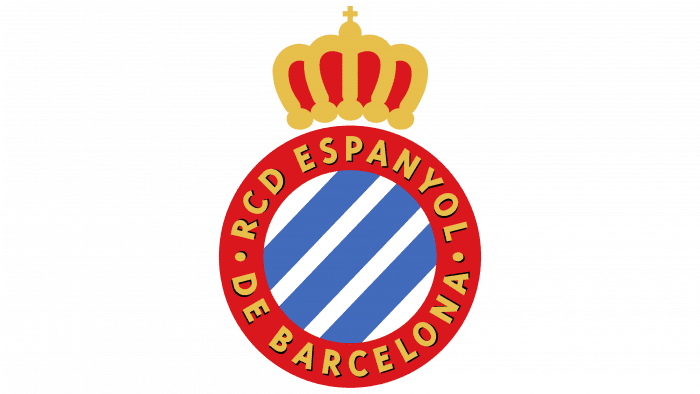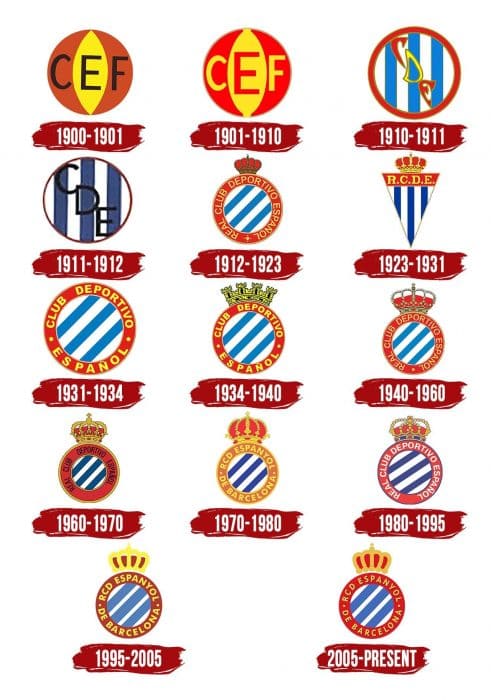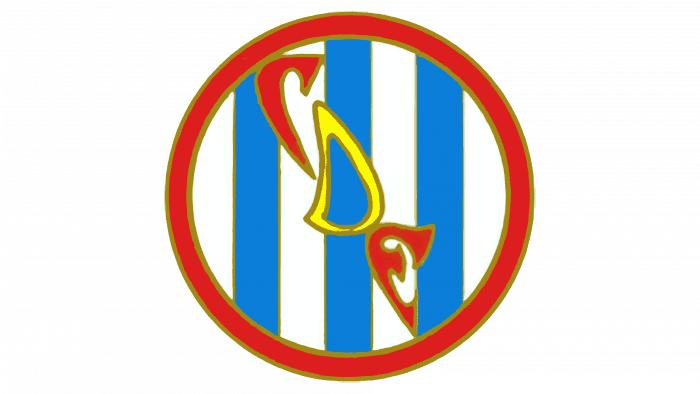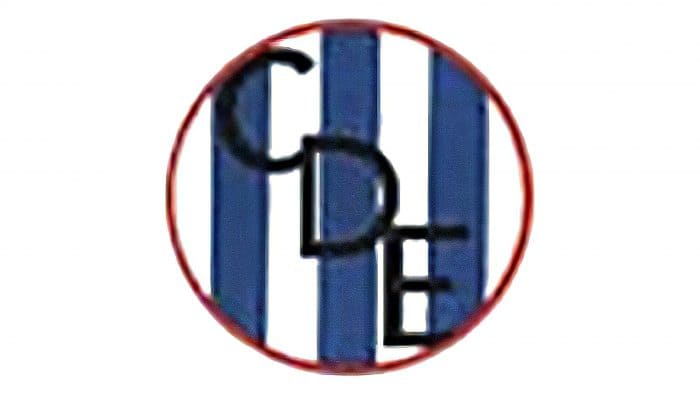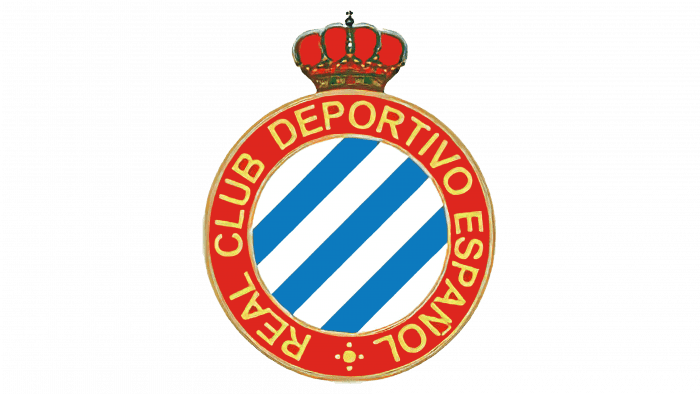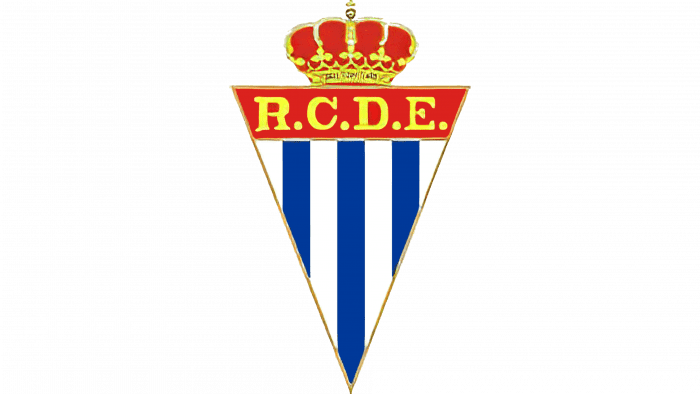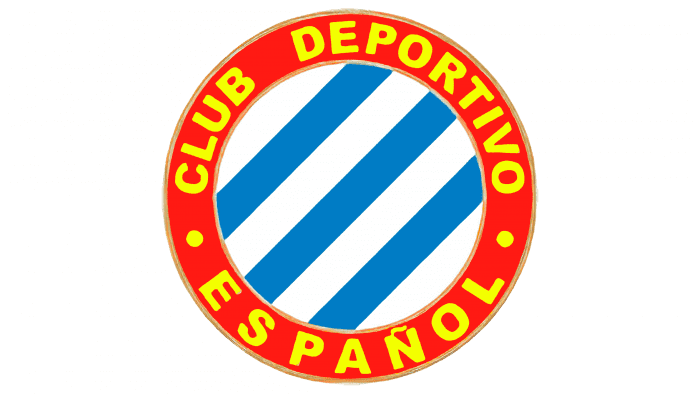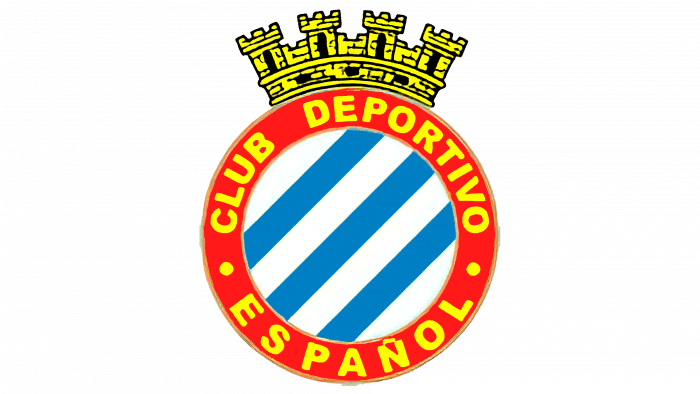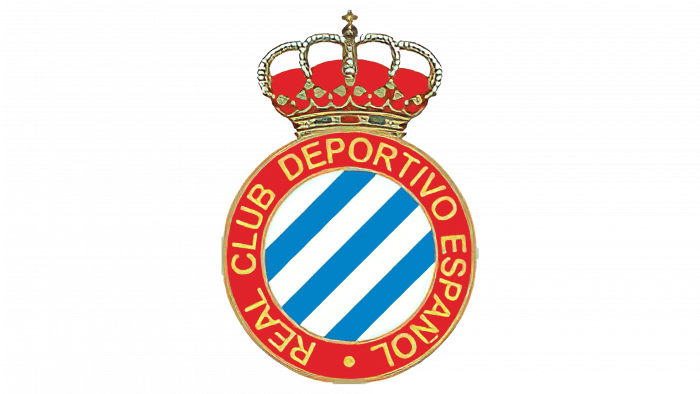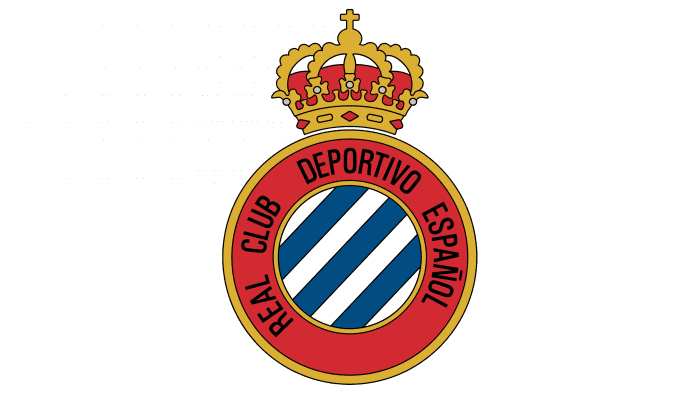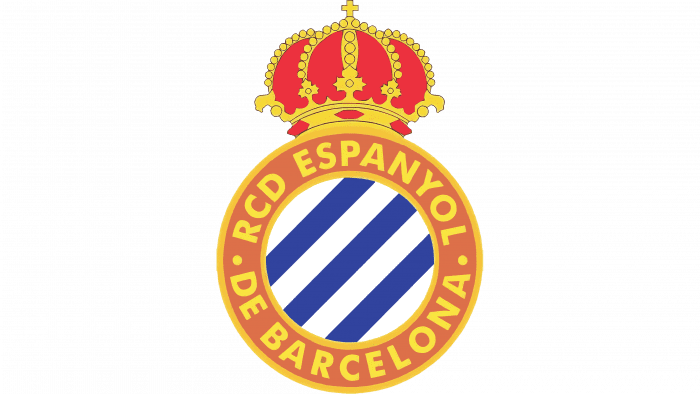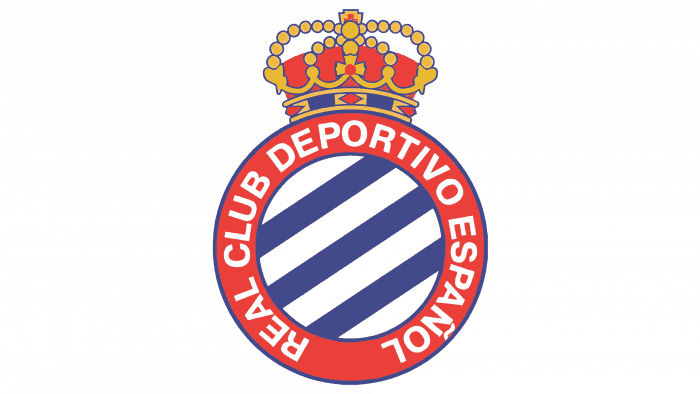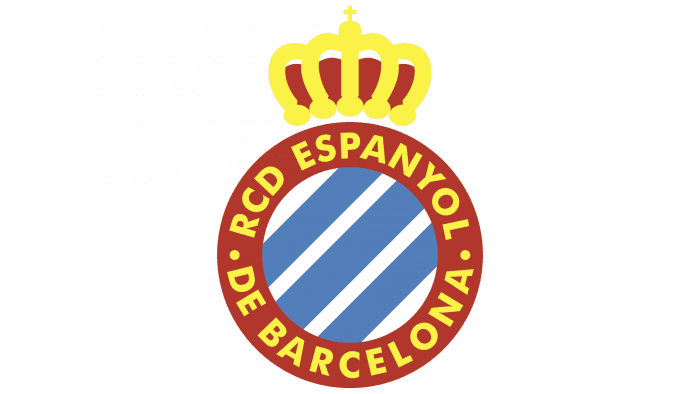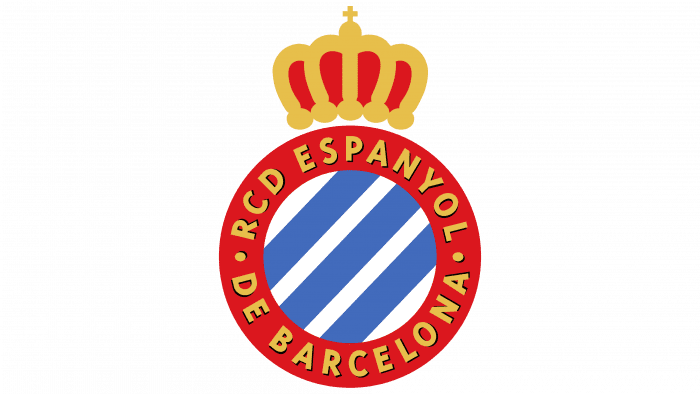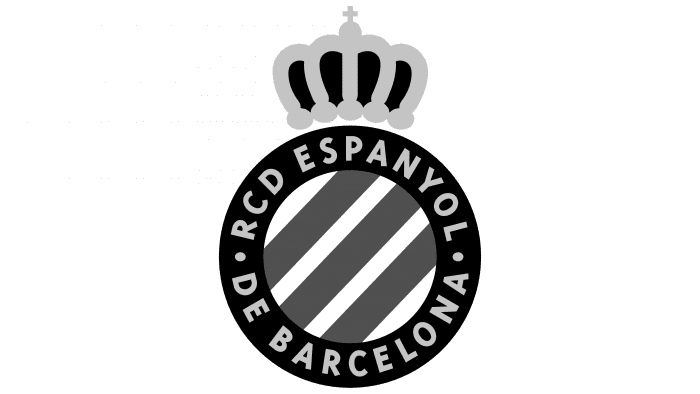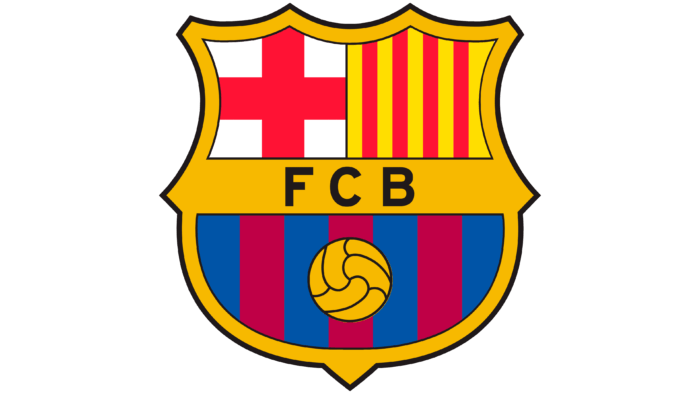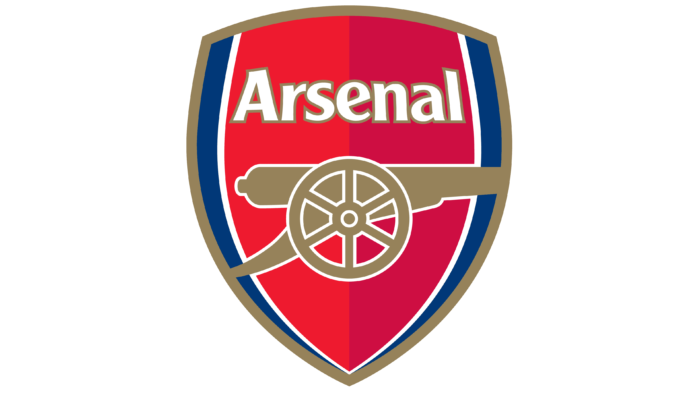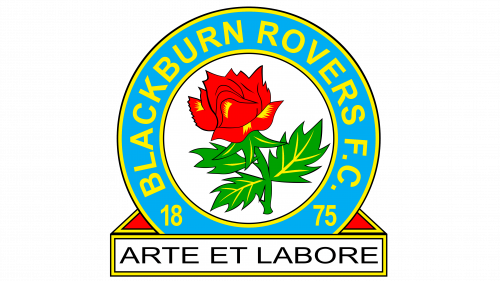Reial Club Deportiu Espanyol de Barcelona is one of the few football clubs patronized by the Spanish monarch. He received the right to use the word “Reial” in his name and the crown in the emblem as a privilege. All this influenced the way the Espanyol logo looks now. It seems unique and aristocratic.
Espanyol: Brand overview
| Founded: | 28 October 1900 |
| Founder: | Rastar Group |
| Headquarters: | Cornellà de Llobregat, Spain |
| Website: | rcdespanyol.com |
Meaning and History
Almost all Espanyol emblems are round. The only exception is the triangular shield, adopted in 1923-1931, during the dictatorship of Miguel Primo de Rivera. However, historical events have never influenced the team’s image because they tried to be outside of politics.
What is Espanyol?
Espanyol is the common name for Reial Club Deportiu Espanyol de Barcelona. The professional football team participates in La Liga and has won the country’s cup four times. It was established in 1901 and was previously known as Sociedad Española de Football.
1900 – 1901
The first Espanyol logo is a light brown circle, inside which is a yellow ellipse with sharp corners. Each segment contains one black letter: “C,” “E,” and “F.” It is an acronym for Club Español de Futbol.
1901 – 1910
The sides of the circle turn red. The letter “E” is also red, and it is noticeably enlarged. The size of “C” and “F” has not changed, but they are now yellow.
1910 – 1911
In 1909, the sports organization was relaunched as Club Deportivo Español, so the abbreviation changed: the logo now reads “CDE.” The designers used an unusual “quivering” font, made the side letters red, and the middle “D” repainted yellow. A red ring surrounds the circle. Inside there are blue and white vertical stripes.
1911 – 1912
The letters are black and written in a simple sans serif typeface. The red ring is much thinner than the previous version. The blue has become darker.
1912 – 1923
In 1912, Alfonso XIII granted the team its royal patronage, and with it the right to be called Real Club Deportivo Español and to depict the crown on the emblem. The attribute of royalty sits above a circle with white and blue diagonal stripes. Gold lines on both sides surround the red ring. At the same time, it is quite wide, because the new name of the club is written on it.
1923 – 1931
During the reign of the dictator Miguel Primo de Rivera, the circle turned into a triangle. Its bottom is lined with vertical blue and white lines, and at the top, there is a red rectangle with the inscription “RCDE.” The crown has not changed; only the colors have become lighter.
1931 – 1934
After the toppling of Alfonso XIII, the team returned the logo used in 1912-1923. Noticeable metamorphoses took place in it: the crown disappeared, and the name began to be written as “CLUB DEPORTIVO ESPAÑOL.”
1934 – 1940
In 1934 the crown returned, but it was not a royal crown, but a tower one. The same gold crown with four turreted teeth adorned the coat of arms of the then-existing Second Spanish Republic.
1940 – the 1960s
When the Spanish Civil War ended, the club regained its honorary title and returned the 1912-1923 logo. The ring again reads “REAL CLUB DEPORTIVO ESPAÑOL,” and the circle is crowned with a large royal crown.
the 1960s – 1970s
The designers expanded the ring by reducing the diameter of the central circle and made it burgundy. The inscription is black, the words are arranged asymmetrically.
the 1970s – 1980s
Inside the orange ring, RCD ESPANYOL DE BARCELONA is written in yellow letters. The inside of the crown is completely red.
the 1980s – 1995
The color scheme has changed again: the ring is again red, and the crown’s top is not painted. The inscription “REAL CLUB DEPORTIVO ESPAÑOL” is white.
1995 – 2005
The blue lines on the emblem are wider than usual. The crown is depicted in a minimalist style: it hangs over the circle and consists of wide yellow lines, between which red spots are visible. The ring reflects the club’s new name, adopted in 1995: “RCD ESPANYOL DE BARCELONA.”
2005 – today
There were minor crown design changes: the yellow color became golden, and the gaps were completely painted over with red. The letters now have black shadows on the right side.
Espanyol: Interesting Facts
Espanyol is a soccer team from Barcelona, Spain, and they play in La Liga, the top soccer league in Spain. They started in 1900, making them one of the oldest teams there.
- How It Started: Many Spanish college students made Espanyol in 1900. Unlike teams with many players from other countries, they wanted their team to show off Spanish pride.
- The Name: They first called themselves Sociedad Española de Football to highlight their Spanish roots. In 1912, thanks to the king, they got to add “Real” to their name, which means “Royal.” Later, they changed their name to Espanyol.
- Their Home: Espanyol moved houses a few times, and in 2009, they moved to the RCDE Stadium, a nice place to play soccer. It even won an award in 2010.
- Winning Stuff: They’ve won the Copa del Rey, a big deal soccer cup in Spain, four times: in 1929, 1940, 2000, and 2006.
- Europe Adventures: They got close to winning the UEFA Cup, another big soccer competition, two times but ended up in second place both times.
- Big Rivals: They have a big rivalry with FC Barcelona, another soccer team from Barcelona. Even though FC Barcelona is more famous, Espanyol has had some great wins against them.
- Growing Talent: Espanyol is good at training young soccer players who go on to star in Spain and other places.
- Fans and Nicknames: People who support Espanyol are called “pericos,” which means “parakeets” in Spanish. This nickname originated from some parakeets that lived near their old stadium.
- Remembering Dani Jarque: They remember Dani Jarque, a player who sadly passed away in 2009. To honor his memory, they renamed their training facility after him.
So, Espanyol is not just a soccer team. It has a long history and cool traditions, and it is important to its fans in Barcelona and beyond.
Font and Colors
Almost all but the earliest Espanyol emblems feature a pattern of white and blue stripes. This is a reference to the shield of Admiral Roger de Lluria, who fought for the Crown of Aragon. The Spanish crown serves as a reminder that Alfonso XIII once favored the club. The inscription in the ring is an abbreviation for the full name of Reial Club Deportiu Espanyol de Barcelona.
The designers used one of the standard sans serif fonts. The color scheme is more varied, including white (#FFFFFF), blue (# 007FC8), red (# DF1116), and yellow (# F4CF0C). White and blue have been part of the official Espanyol palette since 1910. Before that, the main color was yellow.
Espanyol color codes
| Blue | Hex color: | #007fc8 |
|---|---|---|
| RGB: | 0 127 200 | |
| CMYK: | 100 37 0 22 | |
| Pantone: | PMS 3005 C |
| Red | Hex color: | #df1116 |
|---|---|---|
| RGB: | 223 17 22 | |
| CMYK: | 0 92 90 13 | |
| Pantone: | PMS Bright Red C |
| Yellow | Hex color: | #f4cf0c |
|---|---|---|
| RGB: | 244 207 12 | |
| CMYK: | 0 15 95 4 | |
| Pantone: | PMS 109 C |
